 Everything you need to know about today’s coverage of Israel and the Mideast.
Everything you need to know about today’s coverage of Israel and the Mideast.
Iranian sanctions gather steam, Israel calls for the UNRWA to be shut down, and casualties mount in Egypt.
Iranian Atomic Urgency
• The US, UK and Canada are coordinating sanctions on Iran. Details at ABC News.
• The US is preparing a new level of sanctions against Iran. The WSJ writes:
The Obama administration Monday will also sanction “dozens” of Iranian companies and organizations that are allegedly involved in supporting Tehran’s nuclear program, including its development of centrifuge machines and a plutonium-producing reactor in the city of Arak.
The U.S. will further announce new sanctions on the sales of goods and services utilized in both Iran’s production of petrochemicals and crude-oil exports.
 There’s also the matter of Iran’s central bank being labeled as a “concern for money laundering,” though it won’t be sanctioned yet:
There’s also the matter of Iran’s central bank being labeled as a “concern for money laundering,” though it won’t be sanctioned yet:
But U.S. officials said this new action would serve as a warning to governments and businesses in Europe, Asia and Latin America to wind down their ties to Bank Markazi and their purchases of Iranian crude oil, as even tougher actions likely will be coming down the road.
“This allows foreign countries to think about how to protect themselves and wean themselves off Iranian oil in a way that doesn’t disrupt the energy markets,” said a senior U.S. official briefed on the new action.
• Turns out that Gen. Hasan Moghaddam, the Iranian missile commander killed in last week’s explosion, had a relationship with Hezbollah that Tehran’s trying to cover up. AP describes Moghaddam’s brother’s interview in one Iranian paper:
In the interview, Mohammed Tehrani Moghaddam said that his brother had set up missile batteries for Lebanon’s Hezbollah, which is strongly backed by Iran although Tehran denies it arms the group. Hezbollah, also closely allied to Syria, fired rockets deep inside Israel during a conflict in 2006. This quote was also removed from the newspaper’s website.
• Reuters: Iran threatens to cut flow of oil through the Straits of Hormuz if attacked.
• Ahmadinejad’s looking for a media advisor after the previous one suggested in an interview with a reformist newspaper that the chador originated in 19th century Paris. Reuters says the authorities shut down the paper in question.
• Despite the IAEA report, Time says it’s “business as usual” for Iran.
Peace Process

• Jordan’s King Abdullah flew into Ramallah for talks with Mahmoud Abbas. This Daily Telegraph snippet tries to sex-up the story with a non-issue.
A senior Israeli official, who said they were not informed of Abdullah’s plans, welcomed the West Bank visit.
Don’t think a helicopter simply crossed over the Jordan River without Jerusalem’s prior knowledge. The Telegraph’s unidentified senior Israeli official — of which there are many — evidently wasn’t in the loop. But the smaller pool of Israelis who were in the know are smart enough to not talk about it.
• Mahmoud Abbas is defiantly moving ahead with unity plans, despite Israeli and US opposition. More at The Guardian.
• In The Scotsman, Ben Lynfield analyzes the unity talks. See my earlier post on why I had a bone to pick with this throwaway line:
The right-wing government of prime minister Benjamin Netanyahu has responded to the Palestinian pre-condition that it freeze settlement construction with the biggest Jewish settlement drive in years in East Jerusalem, the area Palestinians claim as the capital of their future state.
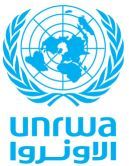 • Israel will formally ask the UN to shut down the UNRWA. According to Yisrael HaYom:
• Israel will formally ask the UN to shut down the UNRWA. According to Yisrael HaYom:
There is a broad consensus among Israeli politicians and the public that Israel cannot absorb all Palestinians refugees into its territory. As long as UNRWA exists, officials say, there will be disagreement about how many Palestinian refugees there are, and as a result there can also be no consensus on how many Palestinian refugees Israel will need to compensate if they cannot return.
Israeli officials have also said that the Palestinian Authority and other Arab countries have refused to settle the Palestinian refugees, which Jerusalem views as an unwillingness on the Palestinians’ part to compromise to reach a final-status agreement and end the conflict.
• Haaretz: Israel will continue freeze on transferring tax money to the PA:
According to the Israeli official, the decision to continue withholding the funds came after Palestinian President Mahmoud Abbas and Hamas political leader Khaled Meshal met to discuss the establishment of a Palestinian unity government.
Arab Spring
*** Lead Screed *** Discussing the Arab Spring’s winners and losers, Graham Fuller (Christian Science Monitor) writes:
The biggest single loser, hands down, is Israel. Many of the old dictators propped up by US money and political support to keep the lid on the region are now falling, with more to go over time – most likely in Bahrain, Jordan, and even Saudi Arabia. Israel can no longer count on a free ride in pursuing its policies to preserve occupation indefinitely . . .
This is not to say that the slow spread of democracies might not in some distant future be good for Israel. But it can be good only for an Israel that moves sharply away from its extreme right-wing and apartheid policies and toward a more generous and open political and social order that liberates the Palestinians. Such an event does not remotely appear on the Israeli political horizon right now.
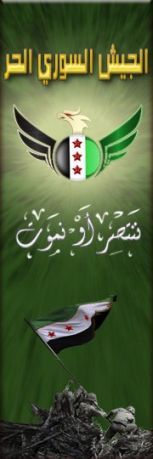 • The JCPA assesses the 20,000 strong Free Syrian Army and how it relates to both the Syrian National Council and the rest of the world. Note the Iwo Jima imagery on the FSA Facebook page.
• The JCPA assesses the 20,000 strong Free Syrian Army and how it relates to both the Syrian National Council and the rest of the world. Note the Iwo Jima imagery on the FSA Facebook page.
The birth of the FSA on July 29, 2011, and its ongoing covert and open military actions is a development that cannot be underestimated or ignored. Exactly as in the Libyan case, if the regime falls, it will probably fall only in the aftermath of the defeat of the forces loyal to the present regime. Until now, the opposition forces were led by civilians. But today the armed confrontation is in the hands of rebel professional soldiers who seem to attract new recruits to their forces day after day. The objective is well-known and well-defined: to bring down the regime . . .
It is still too early to assess the positions of the FSA and the SNC in international affairs beyond the basic fact that these two bodies carry a growing hostility toward Iran and its ally – Hizbullah, while being open to a deep relationship with Turkey and probably with the U.S., France, and the UK. It seems they are trying to follow the Libyan example. (Libya’s Transitional National Council [TNC] has been the only international body to recognize the Syrian opposition.) This means, in other words, that the Syrian opposition is relying greatly on the West to help topple the Syrian regime; hence, the use of the symbol of Iwo Jima.
• Because of the Iranian threat, Arab Spring, and diminishing US influence, the Saudis are becoming more assertive in foreign policy and doubling the size of their armed forces. David Ignatius writes:
They still regard the U.S.- Saudi relationship as valuable, but it’s no longer seen as a guarantor of their security. For that, the Saudis have decided they must rely more on themselves — and, down the road, on a wider set of friends that includes their military partner, Pakistan, and their largest oil customer, China . . .
Saudi sources provided an unofficial summary of the defense buildup. The army will add 125,000 to its estimated current force of 150,000; the national guard will grow by 125,000 from an estimated 100,000; the navy will spend more than $30 billion buying new ships and sea-skimming missiles; the air force will add 450 to 500 planes; and the Ministry of Interior is boosting its police and special forces by about 60,000. The Saudis are also developing their own version of the U.S. Joint Special Operations Command.
• Iran may have supplied Gadaffi with artillery shells custom-made to carry chemical weapons. The shells were recently found already filled with mustard gas. The WashPost got the scoop.
• Clashes in Tahrir Square and around the country. CNN puts casualties at 20 killed and 1,700 injured. The NY Times writes:
With parliamentary elections set to begin in just a week, television commentators were raising alarms even before the clashes erupted, that the military and security forces were not equipped to secure the polls, and many protestors said they feared that the military encouraged the strife as a pretext for postponing the election of a more legitimate body.
But a delay would be sure to set off an even bigger insurrection.
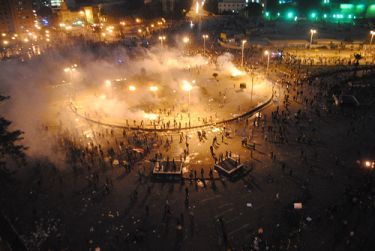
And the LA Times notes this Cairo conundrum:
But political parties, especially Islamist groups, face a dilemma: They want to tap into the spirit of the protests but do not want violence to jeopardize the country’s first significant elections in decades.
See also Tim Marshall‘s analysis of the Egyptian situation.
Muzzling Dissent?
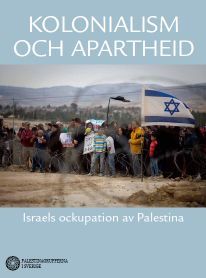 • A Washington Post staff-ed slams the Knesset’s bill to restrict foreign funding for NGOs.
• A Washington Post staff-ed slams the Knesset’s bill to restrict foreign funding for NGOs.
There is, however, nothing nefarious about public organizations in a democratic country receiving support from other democracies. The NGO funders are not enemies of Israel, and the groups themselves are not trying to subvert the state — only to correct what they see as its flaws.
The Post’s correct, to a point, but overlooks two important points that I elaborated on earlier today:
- Some non-governmental organizations are actively delegitimizing Israel. One even used Swedish public money to publish a brochure spouting off about “Israeli apartheid,” “ethnic cleansing,” and more.
- The prime minister already froze the parliamentary process on the bill.
• YNet News: Israeli journos worry about “clear and present danger” to press freedom:
The Knesset’s Constitution, Law and Justice Committee recently approved an amendment to the current libel law that, if approved by the Knesset, would result in a significant hike to the maximum damages paid and would loosen the criteria for slander and libel. Critics of the amendment claim this will obstruct freedom of expression and the independent press.
• This prejudicial headline in The Independent unfairly takes sides with the critics after an illegal radio station was shut down:

Rest O’ the Roundup
• Joseph Levy-Safri appointed chargé d’affaires of Israeli Embassy in Ankara, making him Israel’s top diplomat in Turkey. Details at YNet News.
• Here’s another reason for BDSniks to gnash their teeth: a delegation of mayors from major US cities is visiting Israel. Gotta love this sound bite from Miami-Dade County Mayor Carlos Giminez quoted in the Jerusalem Post:
“When you conjure up the word ‘settlement,’ you think about the Old West, pioneers and all that,” he said in an interview just after visiting Efrat in the West Bank.
“It is really more like a development, that is all it is,” he said. “Settlement is the wrong word to use. If you want to describe it to Americans, it is really a development.”
• Reuters-Middle East Watch notes that the wire service’s Jerusalem bureau chief has been transferred. Indeed, Balmer’s feed now identified him as Chief Correspondent, France.
• The Sydney Morning Herald looks at Jerusalem’s haredi gender wars. The only religious voice in Ruth Pollard’s dispatch is journalist Jonathan Rosenblum, who is buried near the bottom of the article.
• According to AP, the CIA took a hit in Lebanon several spies who tried to infiltrate Hezbollah were captured:
In recent months, CIA officials have secretly been scrambling to protect their remaining spies — foreign assets or agents working for the agency — before Hezbollah can find them.
More at the LA Times.
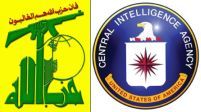
• Reuters: Israel boosts naval patrols around Med gas fields.
(Image of Tahrir Square via Flickr/lilianwagdy)

